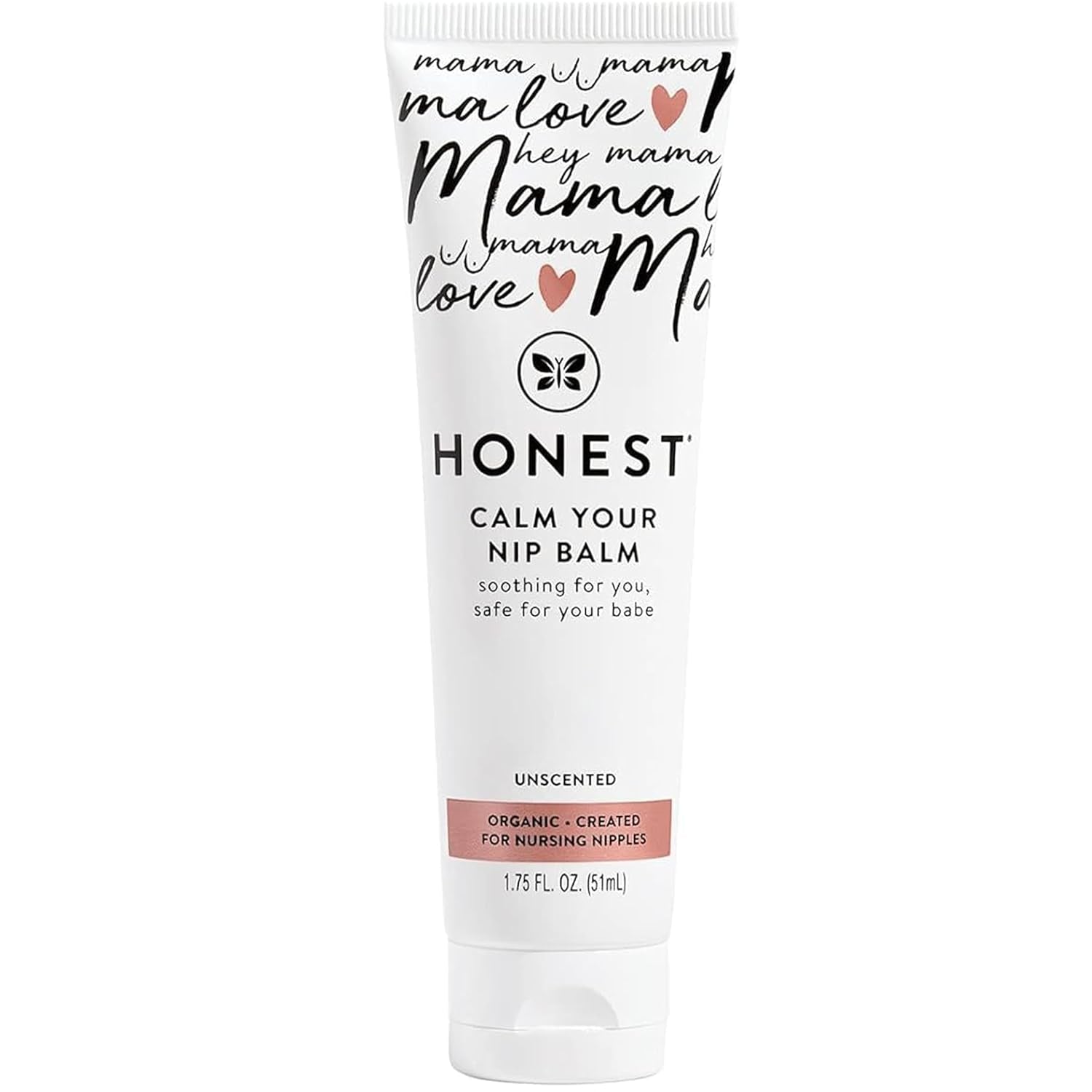
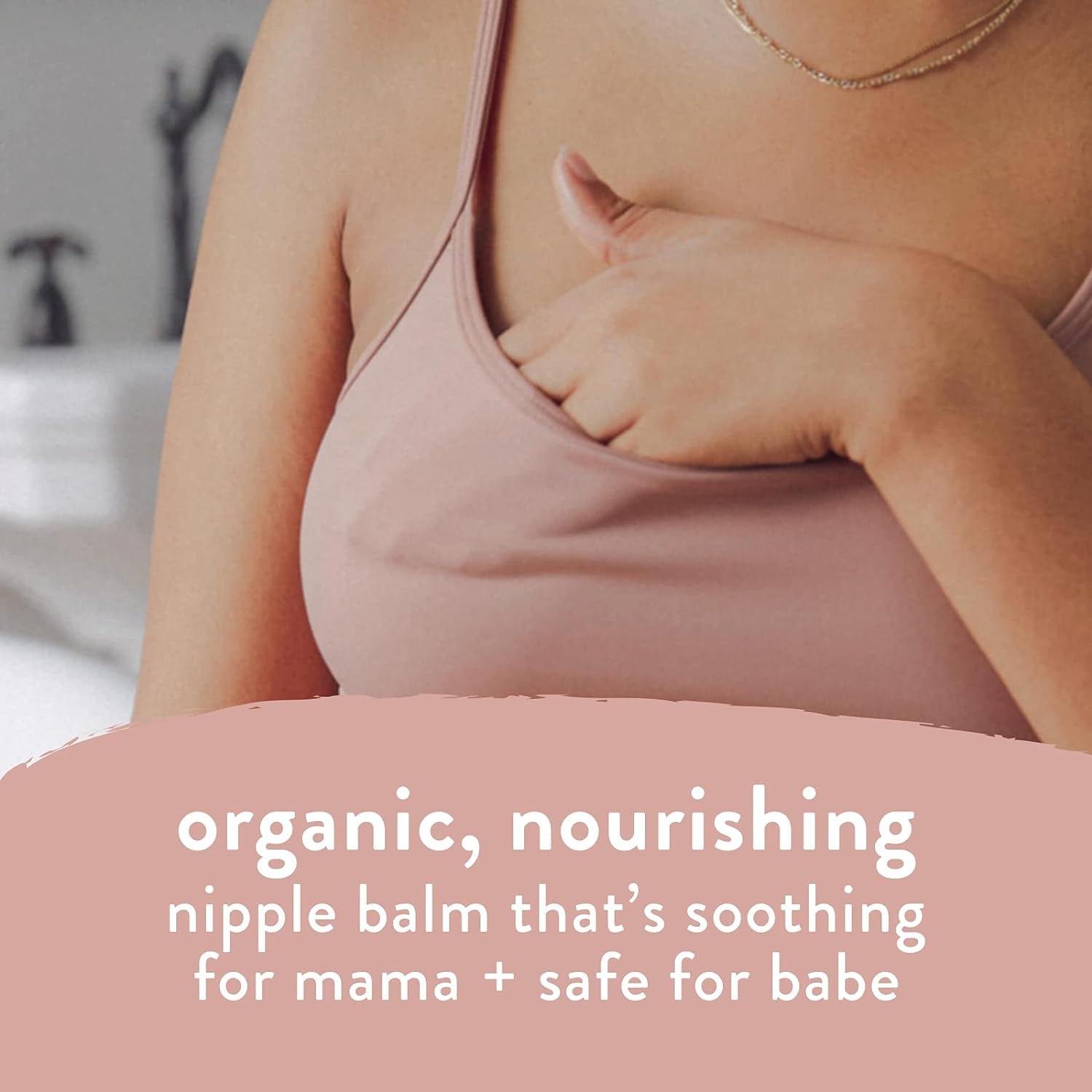
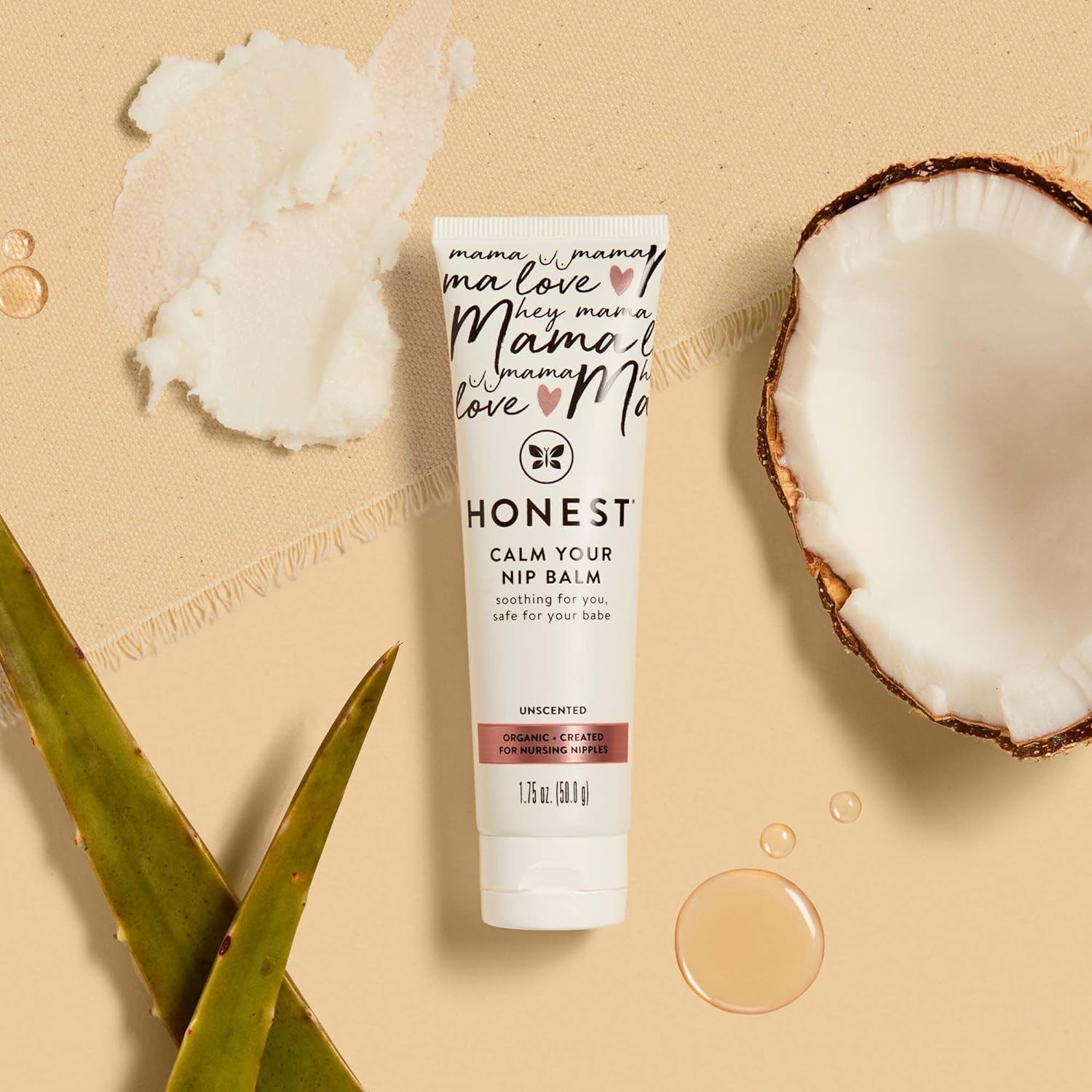
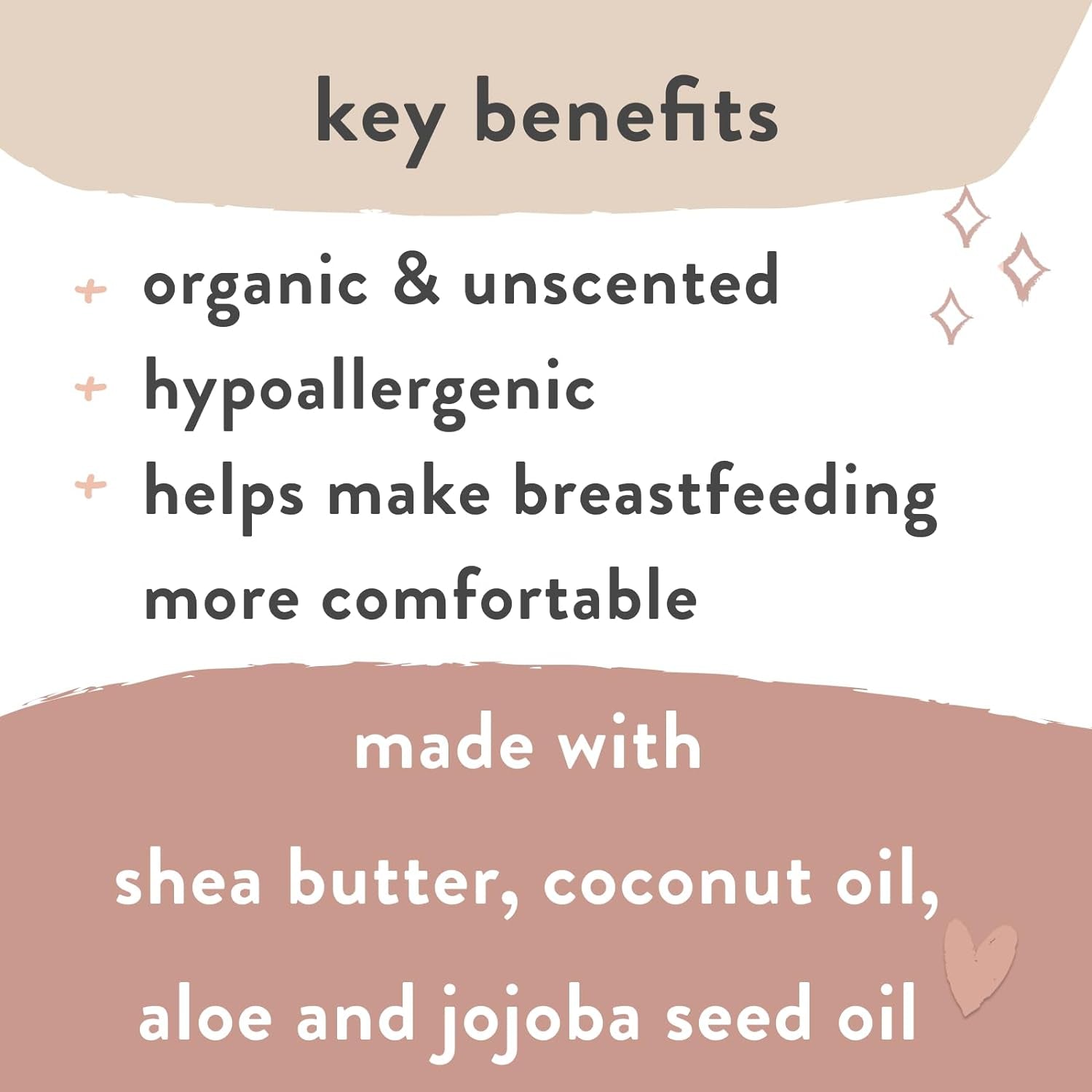
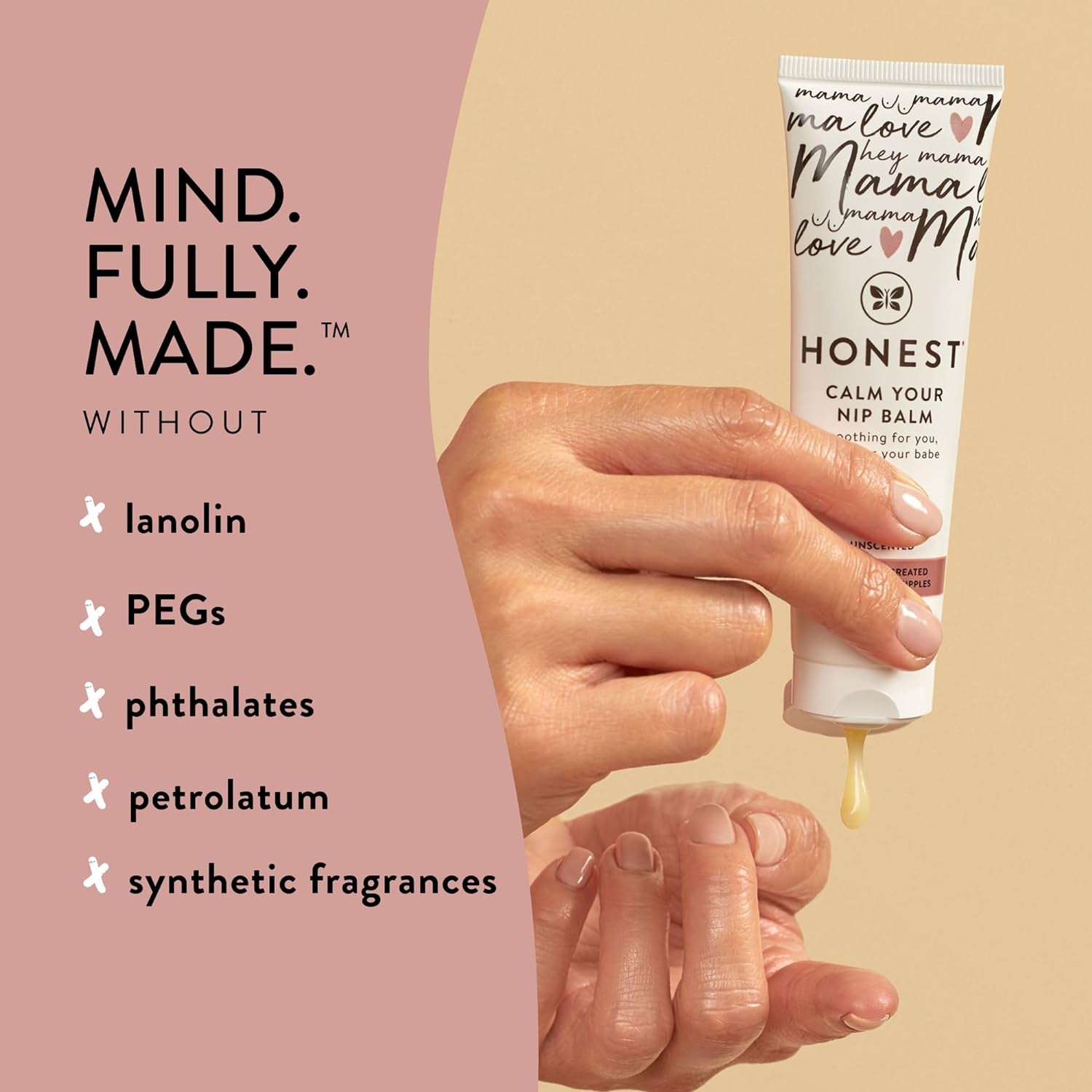
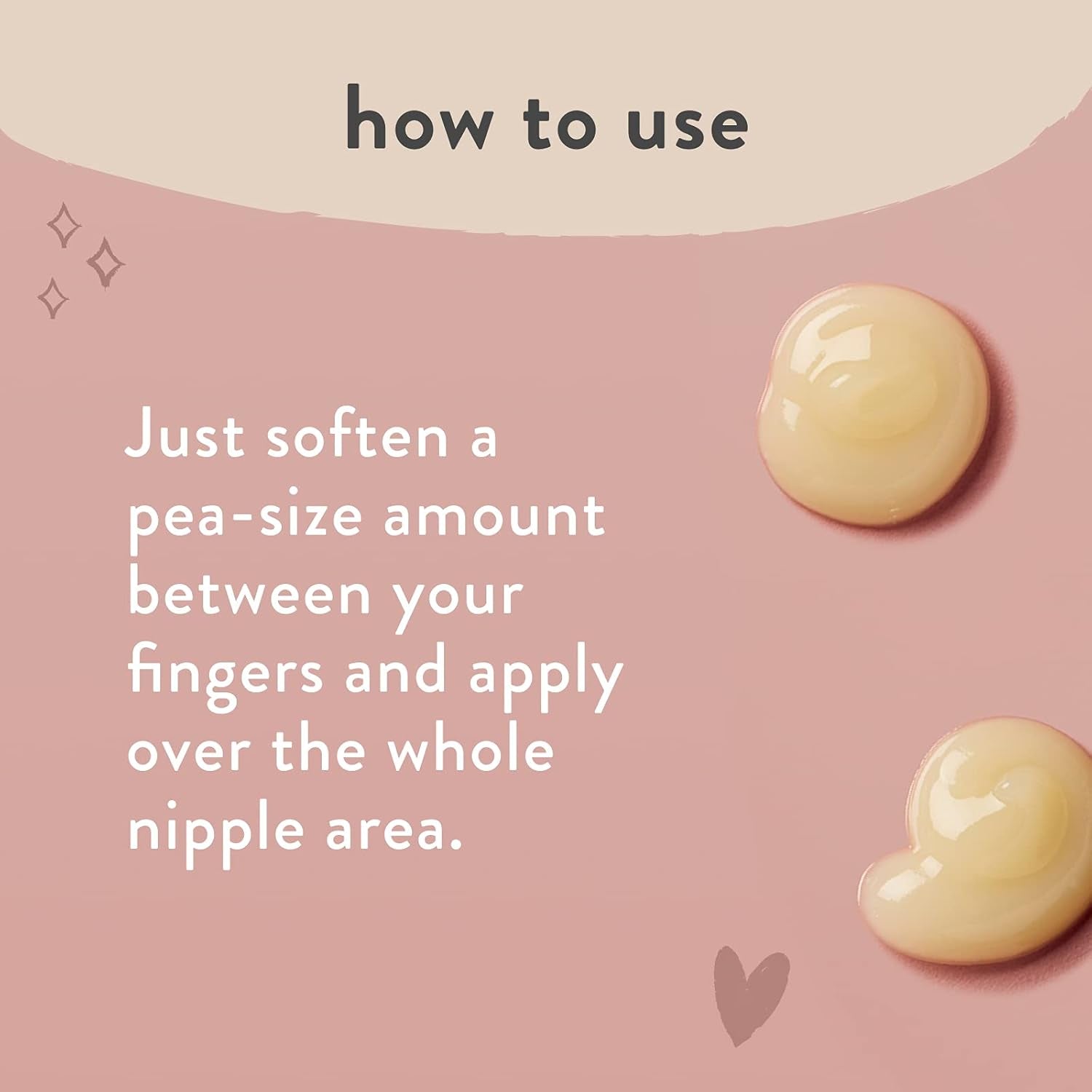
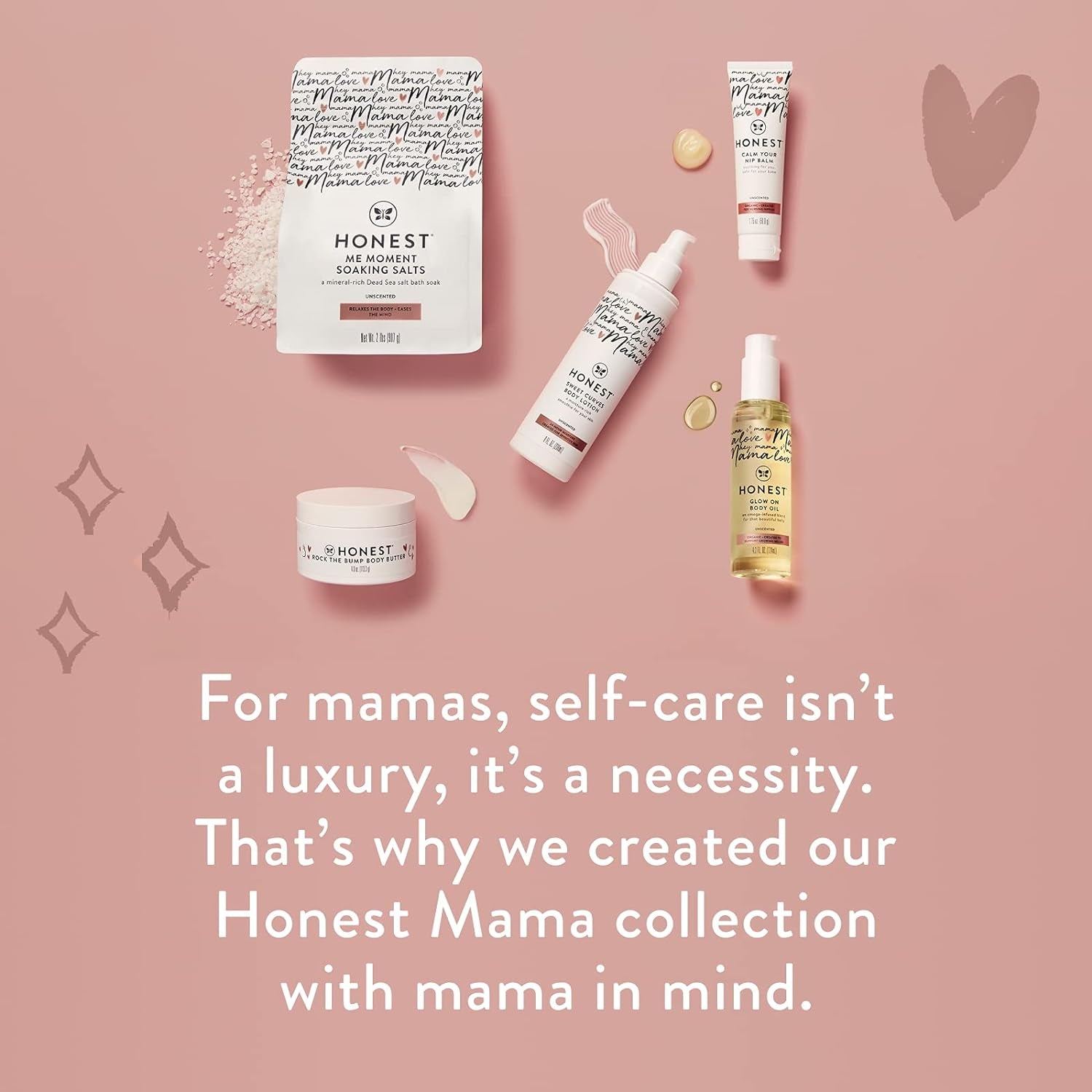
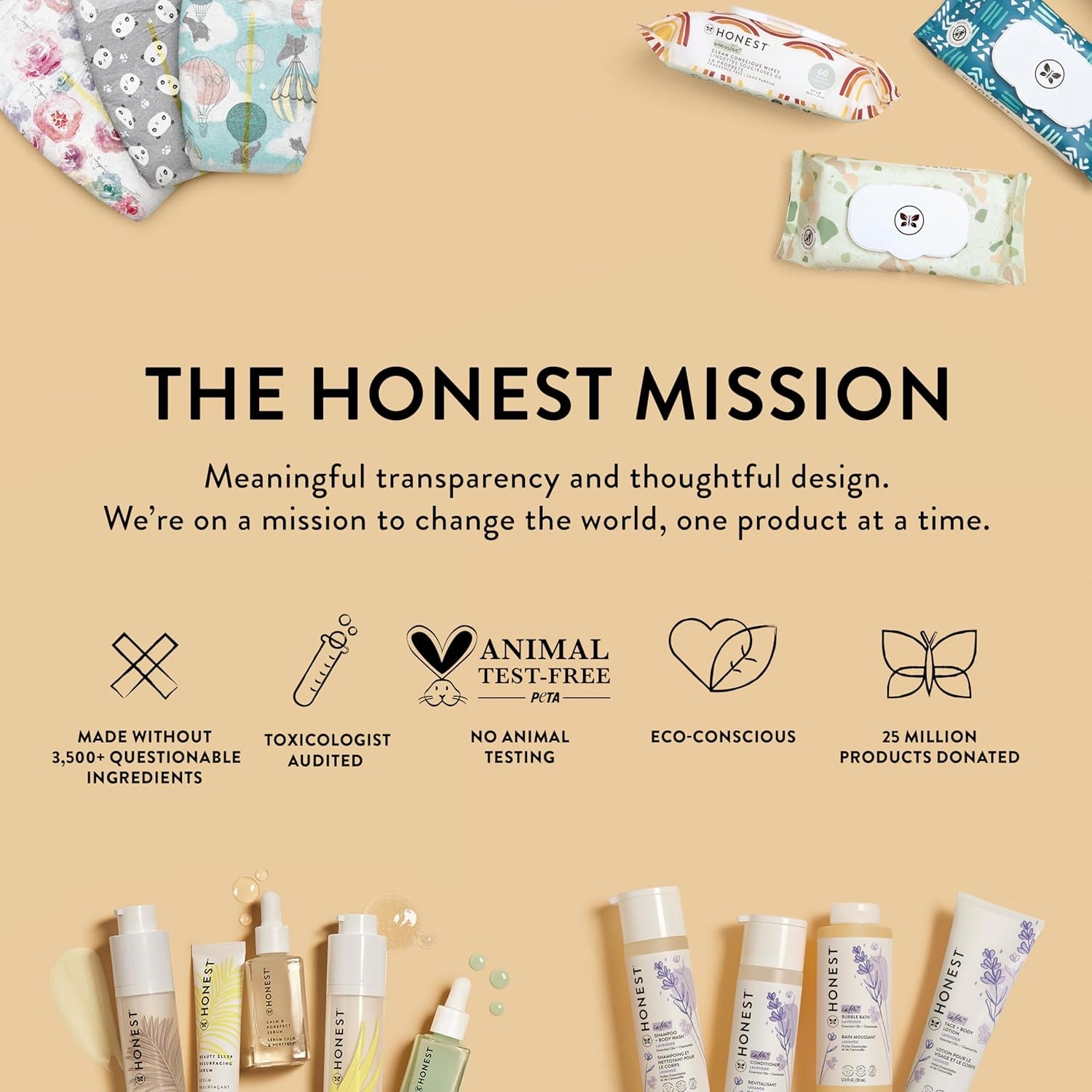
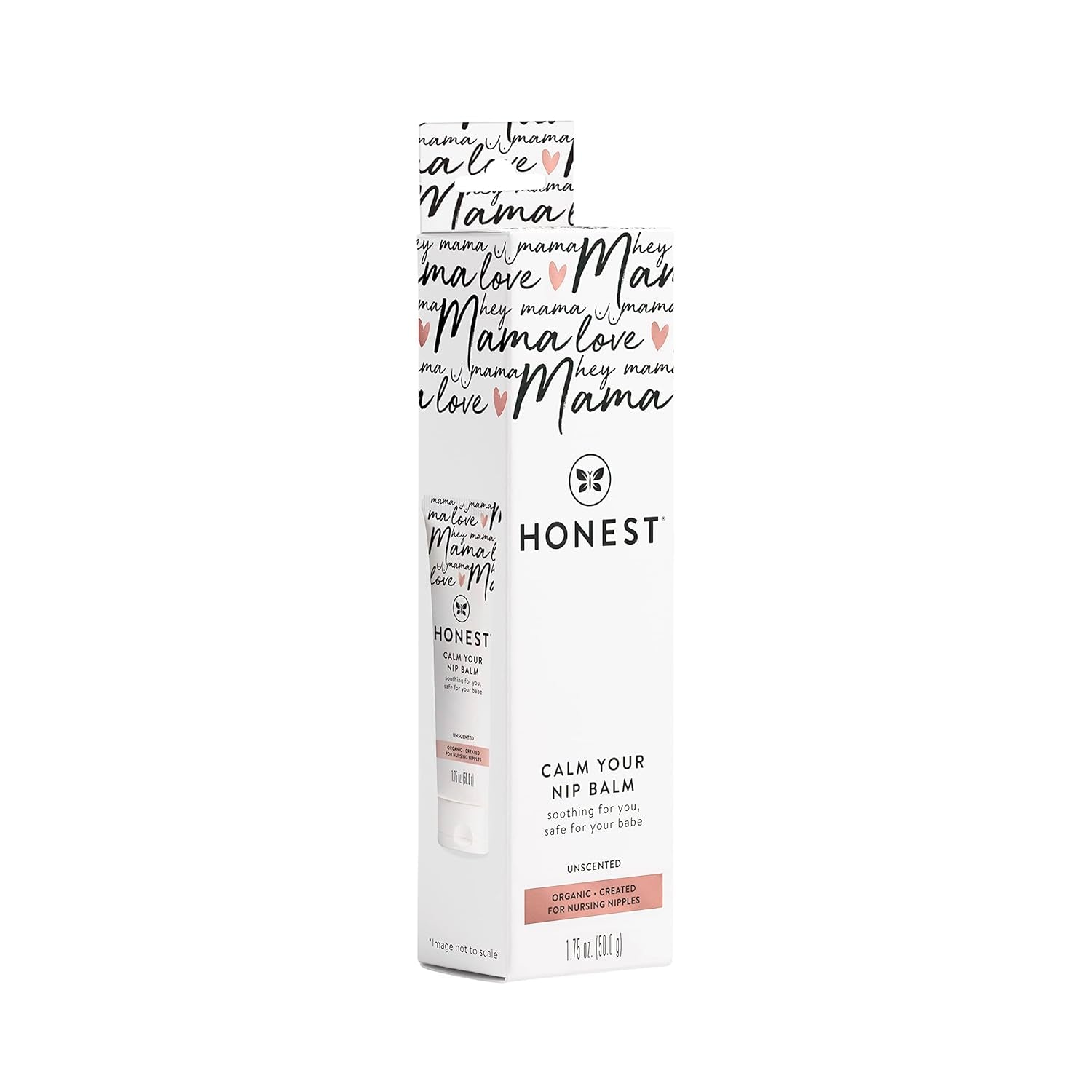
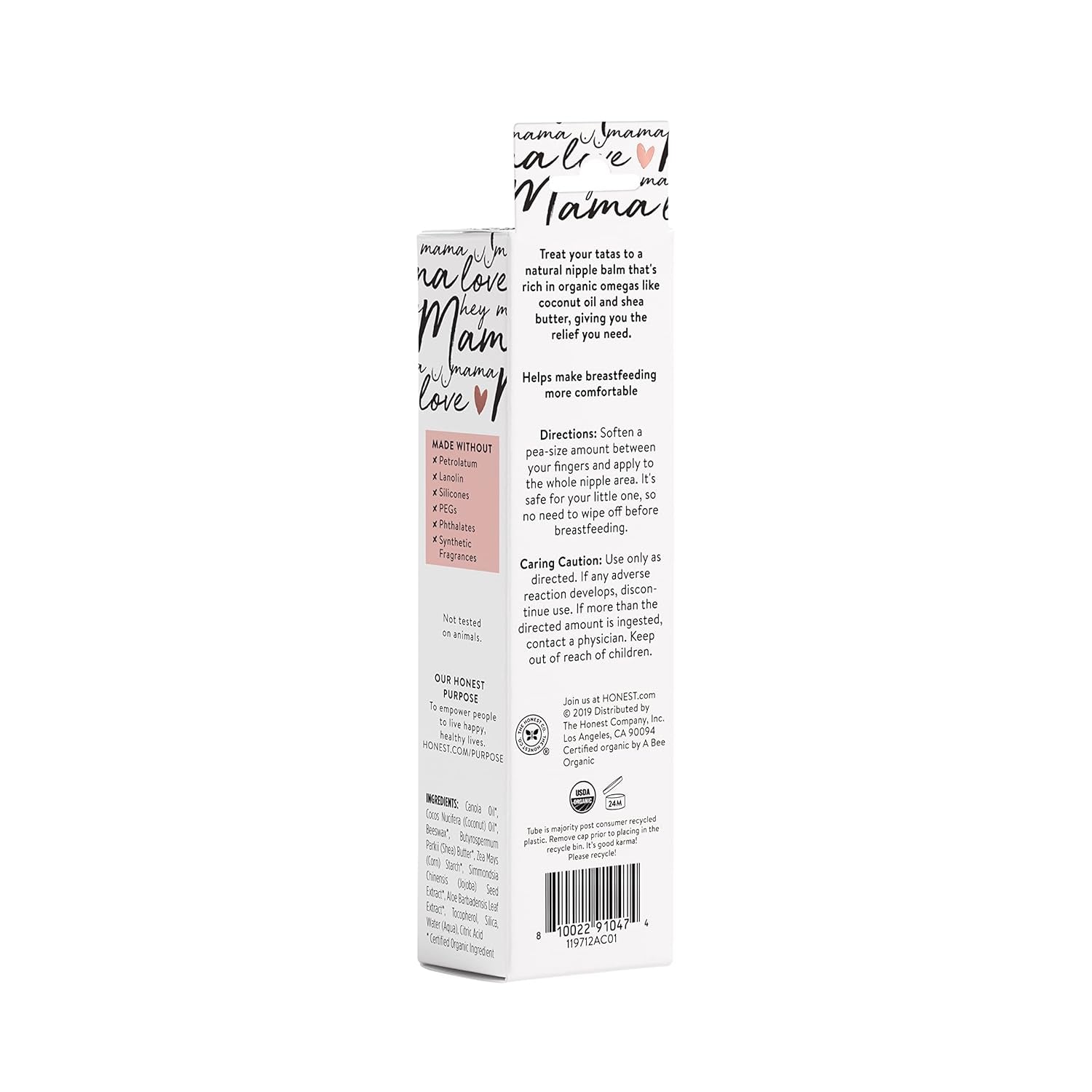
The Honest Company Nipple Butter - USDA Organic, Hypoallergenic, Dermatologist-Tested - 1.75 fl oz


Silica, Amorphous
Medium RiskSilica, amorphous, is a common constituent of sand and is often used in various products for its properties as an anti-caking agent, thickener, or stabilizer. It plays a crucial role in improving the texture and flow of formulations.
Sustai Insights
Amorphous silica offers functional benefits such as enhancing product texture and acting as an anti-caking agent. It poses low health risks, with minimal concerns regarding carcinogenicity, allergenic potential, and reproductive toxicity. Environmental risks are low; however, its lifecycle may involve pollution and bioaccumulation. Regulatory bodies have imposed some restrictions on its use, leading to a medium risk assessment overall. Safe usage practices should be followed, and alternatives like natural clays may provide similar benefits with reduced environmental impact.
Citric Acid
Medium RiskCitric acid is an alpha hydroxy acid used in personal care products primarily for its role as a pH adjuster and natural preservative. It occurs naturally in citrus fruits and is commonly utilized in various formulations for its chelating properties and mild exfoliation benefits.
Sustai Insights
Citric acid offers functional benefits as an effective preservative and pH stabilizer, contributing to product longevity and stability. It is biodegradable and derived from renewable sources. Health risks are low, with minimal concerns regarding carcinogenicity, allergies, and reproductive toxicity. However, moderate use restrictions exist due to potential irritation at high concentrations. Environmental risks are limited, as citric acid is not known to accumulate in ecosystems. Regulatory agencies have no significant advisories against its use. Overall, it is assessed as a medium-risk ingredient, with safe usage practices recommended and alternatives available.
Aloe Barbadensis (Aloe Vera) Leaf Extract
Low RiskAloe vera leaf extract is produced from the succulent leaves of the Aloe barbadensis plant. It is commonly used in cosmetic formulations for its moisturizing and soothing properties, making it a popular ingredient in skincare and personal care products.
Sustai Insights
Aloe vera leaf extract offers several functional benefits, including hydration and skin soothing effects, which are well-supported by scientific literature. It is considered to have a low risk for common health concerns such as carcinogenicity, allergies, or reproductive toxicity. Environmentally, it poses minimal risks, with no significant pollutant potential or bioaccumulation reported. Regulatory bodies have not imposed major restrictions, although verified products should not contain certain contaminants. Overall, this ingredient is assessed as low risk, with safe usage practices and the availability of alternative soothing agents if desired.
Zea Mays (Corn) Starch
Low RiskZea mays (corn) starch is a starch obtained from corn kernels, primarily used as a thickening and stabilizing agent in various cosmetic and food products. It serves as a binder and enhances texture, contributing to the overall formulation's consistency and stability.
Sustai Insights
Zea mays (corn) starch offers functional benefits such as acting as a thickening and stabilizing agent, which helps improve product texture. It is sustainably sourced and biodegradable, posing low health risks, including negligible concerns for carcinogenicity and allergies. Environmental risks are minimal, with no significant pollutant potential noted. Regulatory bodies have not issued advisories, indicating a low overall risk level. Safe usage practices involve ensuring appropriate concentrations in formulations. Alternatives include other plant-based starches or thickeners, which may offer similar functional benefits while maintaining sustainability.
Beeswax
Low RiskBeeswax is the purified wax obtained from the honeycomb of honeybees. It is typically used as a thickening agent, emulsifier, or to provide structure in various cosmetic and personal care products.
Sustai Insights
Beeswax offers functional benefits as a natural emulsifier and thickening agent, contributing to product stability and texture. It is biodegradable and sustainably sourced, aligning with eco-friendly practices. Health risks are low, with minimal concerns regarding carcinogenicity, allergies, or irritation. Environmental risks are also low, with no significant pollutant or bioaccumulation issues. Regulatory bodies impose few restrictions, confirming its safety in use. Safe usage practices should be followed, and alternatives like plant-based waxes may be considered for those seeking vegan options. Overall, the risk level associated with beeswax is low.
Canola Oil
Low RiskCanola oil is low erucic acid Brassica campestris oil, commonly used in food and cosmetic products due to its emulsifying and moisturizing properties. It is derived from the seeds of the canola plant, which is cultivated for its oil-rich seeds.
Sustai Insights
Canola oil offers functional benefits as an effective emulsifier and moisturizer in various formulations. It is generally recognized as safe, with low concerns regarding carcinogenicity, allergies, and reproductive toxicity. Environmentally, it poses minimal risks such as pollution or bioaccumulation. It is not restricted by regulatory bodies like the FDA. Overall, the ingredient's risk level is assessed as low, making it a stable choice for both cosmetic and food products. Safe usage practices should be followed, and alternatives include oils such as sunflower or olive oil, which may offer similar benefits.
Simmondsia Chinensis (Jojoba) Seed Extract
Low RiskSimmondsia chinensis (jojoba) seed extract is a wax ester derived from the seeds of the jojoba plant, commonly used in cosmetic and personal care products for its emollient properties. It helps to moisturize and soothe the skin, making it a popular ingredient in formulations for dry or sensitive skin.
Sustai Insights
Simmondsia chinensis (jojoba) seed extract offers functional benefits as an effective moisturizer and skin conditioner, being biodegradable and sustainably sourced. Health risks are minimal, with low concerns regarding carcinogenicity, allergies, or reproductive toxicity. Environmental risks are also low, with no significant pollutant potential. Regulatory status is compliant, with no current restrictions. Overall, it is assessed as low risk, promoting safe usage practices with no significant adverse effects reported.
Water
Low RiskWater is a clear, colorless liquid essential for various biological processes. It serves as a solvent in formulations, facilitating the dissolution of other ingredients and enhancing product texture and application. Additionally, water plays a crucial role in hydration and is a key component in many cosmetic and personal care products.
Sustai Insights
Water is an effective solvent and hydrator, contributing to the texture and efficacy of formulations. It is biodegradable and generally regarded as safe, with low concerns regarding carcinogenicity, allergies, and reproductive toxicity. However, excessive water usage can lead to environmental concerns, particularly regarding resource depletion. Regulatory bodies do not impose restrictions on water use in cosmetics. Overall, the risks associated with water are low, making it a safe and essential ingredient.
Tocopherol
Low RiskTocopherols are a class of naturally occurring compounds, primarily known for their role as antioxidants. They are commonly used in cosmetic and skincare products to help stabilize formulations and protect ingredients from oxidative damage.
Sustai Insights
Tocopherols provide functional benefits such as antioxidant protection and skin conditioning. They are generally recognized as safe, with low concerns regarding carcinogenicity, allergies, and reproductive toxicity. However, enhanced skin absorption and potential endocrine disruption are noted. Regulatory bodies have not imposed significant restrictions on tocopherols, categorizing the overall risk as low. Safe usage practices should be observed, and while alternatives exist, tocopherols remain a viable option in formulations.
Cocos Nucifera (Coconut) Oil
Low RiskCocos Nucifera (Coconut) Oil is derived from the kernels of the coconut palm. It is primarily used in cosmetic formulations for its emollient and moisturizing properties, making it suitable for skin and hair care products.
Sustai Insights
Coconut oil serves as an effective moisturizer and emollient, promoting skin hydration and softness. It is sustainably sourced and biodegradable. Health risks are minimal, with low concerns regarding carcinogenicity, allergens, and reproductive toxicity. Environmental impact is also low, as it does not contribute significantly to pollution or bioaccumulation. Regulatory bodies have not issued restrictions on its use. Overall, coconut oil presents a low risk for health and environmental concerns, making it a safe ingredient in cosmetic products.
Butyrospermum Parkii (Shea) Butter
Low RiskButyrospermum parkii (shea) butter is a vegetable fat derived from the nuts of the shea tree. It is commonly used in cosmetic formulations for its emollient properties, providing moisture and improving skin texture. Additionally, shea butter is known for its ability to enhance the stability of products and deliver a creamy texture.
Sustai Insights
Shea butter offers functional benefits as an effective moisturizer, enhancing skin barrier function and texture. It is sustainably sourced and biodegradable, contributing to eco-friendliness. Health-wise, it is associated with low risks for carcinogenicity, allergies, and reproductive toxicity. Environmental impacts are minimal, with no significant pollutant potential identified. Regulatory assessments indicate no current restrictions. Overall, the ingredient presents a low risk, making it a favorable choice in cosmetic formulations.
Sustai Verified ensures products meet the highest standards for health, sustainability, and transparency. Each product undergoes thorough evaluation by experts who verify sustainability claims, health impacts, and ingredient integrity. Look for the Sustai Verified badge as a mark of trust and alignment with your values. Learn more on our How It Works page.
See How It Works
Sustai Verified ensures products meet the highest standards for health, sustainability, and transparency. Each product undergoes thorough evaluation by experts who verify sustainability claims, health impacts, and ingredient integrity. Look for the Sustai Verified badge as a mark of trust and alignment with your values. Learn more on our How It Works page.
See How It Works
Sustai Verified ensures products meet the highest standards for health, sustainability, and transparency. Each product undergoes thorough evaluation by experts who verify sustainability claims, health impacts, and ingredient integrity. Look for the Sustai Verified badge as a mark of trust and alignment with your values. Learn more on our How It Works page.
See How It Works
Silica, Amorphous
Medium RiskSilica, amorphous, is a common constituent of sand and is often used in various products for its properties as an anti-caking agent, thickener, or stabilizer. It plays a crucial role in improving the texture and flow of formulations.
Sustai Insights
Amorphous silica offers functional benefits such as enhancing product texture and acting as an anti-caking agent. It poses low health risks, with minimal concerns regarding carcinogenicity, allergenic potential, and reproductive toxicity. Environmental risks are low; however, its lifecycle may involve pollution and bioaccumulation. Regulatory bodies have imposed some restrictions on its use, leading to a medium risk assessment overall. Safe usage practices should be followed, and alternatives like natural clays may provide similar benefits with reduced environmental impact.
Aloe Barbadensis (Aloe Vera) Leaf Extract
Low RiskAloe vera leaf extract is produced from the succulent leaves of the Aloe barbadensis plant. It is commonly used in cosmetic formulations for its moisturizing and soothing properties, making it a popular ingredient in skincare and personal care products.
Sustai Insights
Aloe vera leaf extract offers several functional benefits, including hydration and skin soothing effects, which are well-supported by scientific literature. It is considered to have a low risk for common health concerns such as carcinogenicity, allergies, or reproductive toxicity. Environmentally, it poses minimal risks, with no significant pollutant potential or bioaccumulation reported. Regulatory bodies have not imposed major restrictions, although verified products should not contain certain contaminants. Overall, this ingredient is assessed as low risk, with safe usage practices and the availability of alternative soothing agents if desired.
Zea Mays (Corn) Starch
Low RiskZea mays (corn) starch is a starch obtained from corn kernels, primarily used as a thickening and stabilizing agent in various cosmetic and food products. It serves as a binder and enhances texture, contributing to the overall formulation's consistency and stability.
Sustai Insights
Zea mays (corn) starch offers functional benefits such as acting as a thickening and stabilizing agent, which helps improve product texture. It is sustainably sourced and biodegradable, posing low health risks, including negligible concerns for carcinogenicity and allergies. Environmental risks are minimal, with no significant pollutant potential noted. Regulatory bodies have not issued advisories, indicating a low overall risk level. Safe usage practices involve ensuring appropriate concentrations in formulations. Alternatives include other plant-based starches or thickeners, which may offer similar functional benefits while maintaining sustainability.
Beeswax
Low RiskBeeswax is the purified wax obtained from the honeycomb of honeybees. It is typically used as a thickening agent, emulsifier, or to provide structure in various cosmetic and personal care products.
Sustai Insights
Beeswax offers functional benefits as a natural emulsifier and thickening agent, contributing to product stability and texture. It is biodegradable and sustainably sourced, aligning with eco-friendly practices. Health risks are low, with minimal concerns regarding carcinogenicity, allergies, or irritation. Environmental risks are also low, with no significant pollutant or bioaccumulation issues. Regulatory bodies impose few restrictions, confirming its safety in use. Safe usage practices should be followed, and alternatives like plant-based waxes may be considered for those seeking vegan options. Overall, the risk level associated with beeswax is low.
Canola Oil
Low RiskCanola oil is low erucic acid Brassica campestris oil, commonly used in food and cosmetic products due to its emulsifying and moisturizing properties. It is derived from the seeds of the canola plant, which is cultivated for its oil-rich seeds.
Sustai Insights
Canola oil offers functional benefits as an effective emulsifier and moisturizer in various formulations. It is generally recognized as safe, with low concerns regarding carcinogenicity, allergies, and reproductive toxicity. Environmentally, it poses minimal risks such as pollution or bioaccumulation. It is not restricted by regulatory bodies like the FDA. Overall, the ingredient's risk level is assessed as low, making it a stable choice for both cosmetic and food products. Safe usage practices should be followed, and alternatives include oils such as sunflower or olive oil, which may offer similar benefits.
Simmondsia Chinensis (Jojoba) Seed Extract
Low RiskSimmondsia chinensis (jojoba) seed extract is a wax ester derived from the seeds of the jojoba plant, commonly used in cosmetic and personal care products for its emollient properties. It helps to moisturize and soothe the skin, making it a popular ingredient in formulations for dry or sensitive skin.
Sustai Insights
Simmondsia chinensis (jojoba) seed extract offers functional benefits as an effective moisturizer and skin conditioner, being biodegradable and sustainably sourced. Health risks are minimal, with low concerns regarding carcinogenicity, allergies, or reproductive toxicity. Environmental risks are also low, with no significant pollutant potential. Regulatory status is compliant, with no current restrictions. Overall, it is assessed as low risk, promoting safe usage practices with no significant adverse effects reported.
Water
Low RiskWater is a clear, colorless liquid essential for various biological processes. It serves as a solvent in formulations, facilitating the dissolution of other ingredients and enhancing product texture and application. Additionally, water plays a crucial role in hydration and is a key component in many cosmetic and personal care products.
Sustai Insights
Water is an effective solvent and hydrator, contributing to the texture and efficacy of formulations. It is biodegradable and generally regarded as safe, with low concerns regarding carcinogenicity, allergies, and reproductive toxicity. However, excessive water usage can lead to environmental concerns, particularly regarding resource depletion. Regulatory bodies do not impose restrictions on water use in cosmetics. Overall, the risks associated with water are low, making it a safe and essential ingredient.
Tocopherol
Low RiskTocopherols are a class of naturally occurring compounds, primarily known for their role as antioxidants. They are commonly used in cosmetic and skincare products to help stabilize formulations and protect ingredients from oxidative damage.
Sustai Insights
Tocopherols provide functional benefits such as antioxidant protection and skin conditioning. They are generally recognized as safe, with low concerns regarding carcinogenicity, allergies, and reproductive toxicity. However, enhanced skin absorption and potential endocrine disruption are noted. Regulatory bodies have not imposed significant restrictions on tocopherols, categorizing the overall risk as low. Safe usage practices should be observed, and while alternatives exist, tocopherols remain a viable option in formulations.
Citric Acid
Medium RiskCitric acid is an alpha hydroxy acid used in personal care products primarily for its role as a pH adjuster and natural preservative. It occurs naturally in citrus fruits and is commonly utilized in various formulations for its chelating properties and mild exfoliation benefits.
Sustai Insights
Citric acid offers functional benefits as an effective preservative and pH stabilizer, contributing to product longevity and stability. It is biodegradable and derived from renewable sources. Health risks are low, with minimal concerns regarding carcinogenicity, allergies, and reproductive toxicity. However, moderate use restrictions exist due to potential irritation at high concentrations. Environmental risks are limited, as citric acid is not known to accumulate in ecosystems. Regulatory agencies have no significant advisories against its use. Overall, it is assessed as a medium-risk ingredient, with safe usage practices recommended and alternatives available.
Cocos Nucifera (Coconut) Oil
Low RiskCocos Nucifera (Coconut) Oil is derived from the kernels of the coconut palm. It is primarily used in cosmetic formulations for its emollient and moisturizing properties, making it suitable for skin and hair care products.
Sustai Insights
Coconut oil serves as an effective moisturizer and emollient, promoting skin hydration and softness. It is sustainably sourced and biodegradable. Health risks are minimal, with low concerns regarding carcinogenicity, allergens, and reproductive toxicity. Environmental impact is also low, as it does not contribute significantly to pollution or bioaccumulation. Regulatory bodies have not issued restrictions on its use. Overall, coconut oil presents a low risk for health and environmental concerns, making it a safe ingredient in cosmetic products.
Butyrospermum Parkii (Shea) Butter
Low RiskButyrospermum parkii (shea) butter is a vegetable fat derived from the nuts of the shea tree. It is commonly used in cosmetic formulations for its emollient properties, providing moisture and improving skin texture. Additionally, shea butter is known for its ability to enhance the stability of products and deliver a creamy texture.
Sustai Insights
Shea butter offers functional benefits as an effective moisturizer, enhancing skin barrier function and texture. It is sustainably sourced and biodegradable, contributing to eco-friendliness. Health-wise, it is associated with low risks for carcinogenicity, allergies, and reproductive toxicity. Environmental impacts are minimal, with no significant pollutant potential identified. Regulatory assessments indicate no current restrictions. Overall, the ingredient presents a low risk, making it a favorable choice in cosmetic formulations.
Discover the Honest Company Mama Calm Your Nip Balm, a USDA Certified Organic nipple cream designed to provide soothing relief for nursing mothers. This dermatologist-tested, hypoallergenic formula promotes breastfeeding comfort with every application.
- Organic and Unscented: Made without petrolatum, lanolin, silicones, PEGs, phthalates, or synthetic fragrances, ensuring a gentle touch for sensitive skin.
- Comforting Relief: Created specifically for nursing nipples, it helps alleviate discomfort, making breastfeeding a more enjoyable experience.
- Natural Ingredients: Enriched with nourishing ingredients like shea butter and coconut oil, this balm hydrates and protects your skin naturally.
- Easy Application: Simply warm a pea-sized amount between your fingers and apply it to the nipple area for soothing relief whenever needed.
- Cruelty-Free: Not tested on animals, reflecting a commitment to ethical practices and sustainability.
Empower your breastfeeding journey with this reliable, environmentally-conscious nipple cream.
Subscribe & Save with Sustai
- Best Price Guarantee: Always enjoy the lowest prices on sustainable home essentials.
- No Surprises: We’ll notify you before shipping. No hidden fees, ever.
- You’re in Charge: Change, pause, or cancel your subscription anytime with ease.
- Eco-Friendly Deliveries: Our grouped shipments mean less packaging and lower emissions.
Join us on a sustainable journey. Special offers for a limited time! Prices and promotions may change.
Discover the Honest Company Mama Calm Your Nip Balm, a USDA Certified Organic nipple cream designed to provide soothing relief for nursing mothers. This dermatologist-tested, hypoallergenic formula promotes breastfeeding comfort with every application.
- Organic and Unscented: Made without petrolatum, lanolin, silicones, PEGs, phthalates, or synthetic fragrances, ensuring a gentle touch for sensitive skin.
- Comforting Relief: Created specifically for nursing nipples, it helps alleviate discomfort, making breastfeeding a more enjoyable experience.
- Natural Ingredients: Enriched with nourishing ingredients like shea butter and coconut oil, this balm hydrates and protects your skin naturally.
- Easy Application: Simply warm a pea-sized amount between your fingers and apply it to the nipple area for soothing relief whenever needed.
- Cruelty-Free: Not tested on animals, reflecting a commitment to ethical practices and sustainability.
Empower your breastfeeding journey with this reliable, environmentally-conscious nipple cream.

You can have at most 2 Sustainable Steals products in your cart
Customer Reviews
Customers’ View
Customers appreciate the effectiveness and natural formulation of Honest Mama Calm Your Nip Balm, which is particularly valued by breastfeeding mothers. Many users highlight the soothing relief it provides, noting that it alleviates discomfort without the need to wipe off before feeding, making it convenient for nursing. A common sentiment is that the organic ingredients contribute to a gentle experience, especially for those with sensitive skin, with one user mentioning it significantly reduced nipple trauma during breastfeeding. Additionally, the unscented formula is praised for being safe for both mother and baby. Overall, customers find this nipple balm to be an effective, organic choice that aligns well with their health-conscious values.
AI-generated from the text of customer reviewsThis product is rated 5.0 of 5.0 stars.
It has received 4 reviews.


